Tara Treasures is an Australian company that produces beautiful hand-felted products using traditional methods to create designs bursting with whimsy, character, and charm. Made from high-quality GOT Certified New Zealand wool, each creation is certain to spark creativity and imagination. Behind this brand is a story of compassion and ethical business practices. In fact the very name of this company refers to Tara, the Goddess of compassion. From the very start, Tara Treasures committed to helping Nepalese women artisans through supporting fair wages that create flow-on effects to their communities. This philanthropic company strives to operate with integrity upholding the highest ethical standards in everything they do.
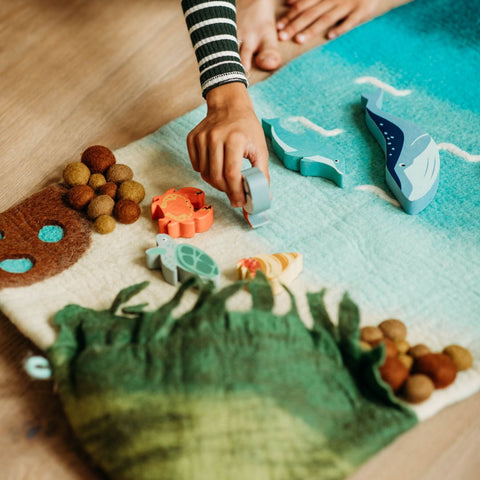
We sat down with husband and wife team, Jooli Chan and Jag Gurung, to learn more about this inspiring company and their beautiful products.
How did you start Tara Treasures?
Tara Treasures was conceived over 15 years ago with the inspiration to contribute to Nepalese society, especially to the women of the country. Since Nepal is a patriarchal society, men have always been given more opportunities to study, go abroard or pursue their dreams as compared to their female counterparts. Also, men traditionally were the sole breadwinner in a family simply because women were not given the equal opportunity to educate or develop skills themselves. Hence, if something happened to the men, or if they were a 'bad apple,' the women would be stuck in dire circumstances, especially if they had young children, as Nepal has no social safety net. With this in mind, we started Tara Treasures to provide employment through artisanal handicrafts and we now have over 300 women working on our treasures. The women are skilled through employment which then provides them with a sense of financial independence.
Tara Treasures was a 'side hustle' during the early days as both of us were working full time. Two major events made us consider taking our side hustle more seriously. Firstly, was the Nepal earthquake in 2015 and secondly, was when the COVID-19 pandemic struck. Both of these events made us realize the vulnerability of Nepalese society, including the women employed in the cottage industries that made our products. It also highlighted how Nepal was very much dependent on foreign aid, especially in times of crisis. It was the latter event that made us take the leap to go full-time with our business and then, as they say, the rest is history.
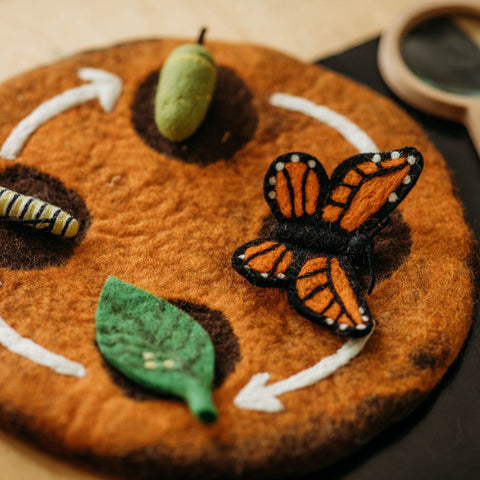
Was there a connection to Nepal?
I (Jag) was born and spent my early childhood in Nepal. I was fortunate enough to grow up overseas (Singapore) due to my dad's employment. I felt blessed and fortunate as compared to most Nepalese back in Nepal but I always had a desire to contribute to the society back home. And what better way than through employment, especially for the community of Nepalese women.
Was there a connection to felting?
We focused on felting because it is very versatile, so that we can design and it allows us to do so much with it. It's also very tactile which is ideal for our sensory and play-based learning theme. Wanting to use something natural and sustainable, it worked in our favor that New Zealand wool was readily available in Nepal due to the trade agreement between New Zealand and Nepal to help out the local economy.
What were some of your first products?
We tried different ranges of felt products but our first most successful range was the finger puppet sets, starting with the Australiana range. Then our cot mobiles took off and our current bestsellers are our play mats.
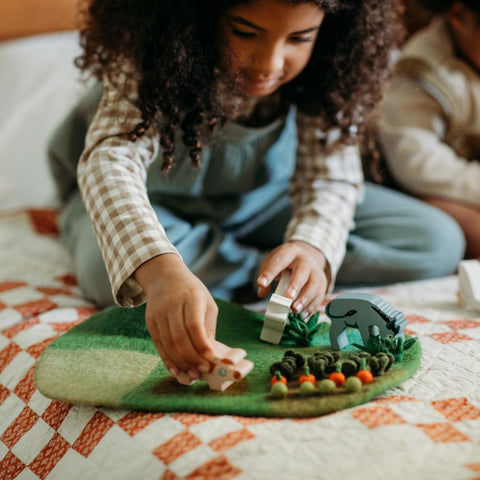
How do you come up with your whimsical and lovely designs?
I (Jooli) have a background and degree in design but then started working in corporate marketing. The design part of me never left and I am always thinking about things creatively and visually. When I come up with a design, I think about it from both form and function and think about the scalability. Then I hand draw all of my designs in my little book with all the color coding and then liaise with the master-felter on the prototype in Nepal. Many of our designs are influenced by the things that our children are interested in like space and animals. We try to keep everything gender neutral and diverse, representative of today’s society. Our daughter just started at a Waldorf school and that has inspired even more of our play-based designs and play schemas.
A big part of your business is the ethical work you do with your Nepalese artisans. Can you share some stories of how the fair trade wages have positively impacted Nepalese communities?
We work closely with cottage industries that are audited and certified by an external auditing organization, such as Amfori (https://www.amfori.org/en) and recently one of our big suppliers achieved an 'A' in all fields. For a smaller supplier who may not be able to afford such an audit, we personally make a yearly visit to ensure that the conditions, environment and wages meet the fair-trade guidelines. We also have local partners who will make random visits and keep us updated on our suppliers. Things are changing for the better in Nepal. 95% of the people who work on our products are moms and once they drop their kids off, they can work, learn new skills, and gain independence. There are options for education as child labor is now illegal and unions are very strong ensuring more workplace safety and fairness.
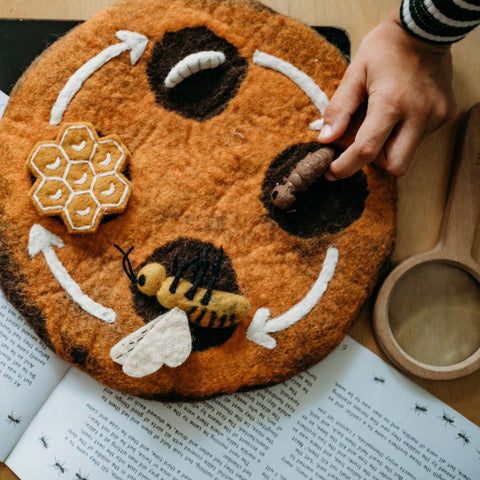
Another key feature of your business is the GOT certified New Zealand wool used in your products. Can you share some of the insights on your environmental mission and how that informs your business?
New Zealand wool is imported and dyed by other players in the industry. We make sure that the wool is only sourced from a reputable supplier and they comply with the Oeko-Tex Standard 100, GOTS or REACH standards. Using 100% natural and sustainable material, wool as our main material, has been our foremost 'weapon' in our environmental mission. We incorporate this mindset as much as possible in other business aspects such as production and packaging.
Any stories that you want to share about a favorite product or how a bestseller came to be?
I would say the favorite/bestseller, for me personally, would be our Australian Animals A - Finger Puppet Sets. It was during COVID lockdown, when Jooli took inspiration from our own backyard (The Australian Outback) and came up with these designs. It was so well-received by our fellow Aussies, and based on its success we were able to experiment and explore many other designs, including the play mats.
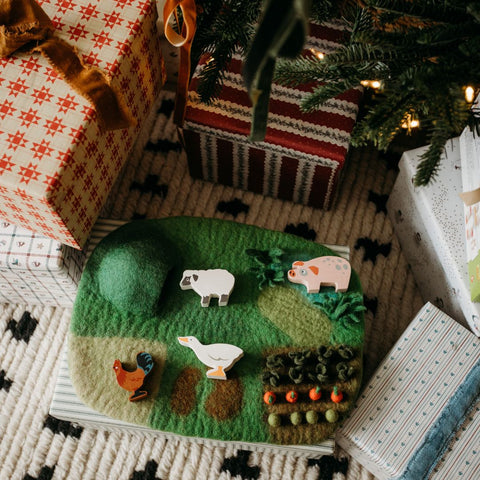












Leave a comment